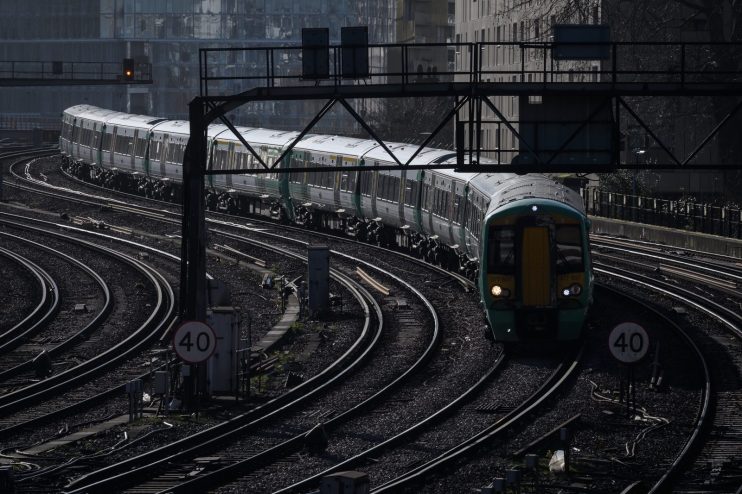Rail union gears up for strike action amid fears of 10,000 job cuts

The UK’s rail union is preparing for industrial action over fears that thousands of rail workers lose their jobs in the coming months.
The RMT said that Network Rail had made plans that would result in “thousands of job losses by this September and a wholescale dilution of safety standards, including a halving the frequency of safety critical maintenance work”.
A spokesperson for the union told City A.M. that in the worst case scenario 10,000 jobs could be at risk.
In response to the plans, the RMT said it was launching the next stage of its efforts to fight against the cuts.
General secretary Mick Cash said: “Under orders from the Government Network Rail is using the Covid-19 drop in passenger numbers and service levels to rush through the most radical restructuring of the railway infrastructure since privatisation.
“Today RMT is launching the next phase of the campaign to fight to stop those lethal cuts whilst at the same time preparing the ground for a national industrial dispute.
“Rather than the post Covid-19 return to rail recovery which our economy and climate desperately needs this is a return to the disastrous days of Railtrack where cutting costs and corners led to a string of fatal accidents.
“Rail staff, who have been essential workers throughout the pandemic, have already had a kick in the teeth with an attempt to impose the government’s pay freeze. Now they are threatened with the loss of thousands of jobs accompanied by a drastic dilution of safety tasks, which will have catastrophic consequences for rail safety.”
Reports of widespread reforms come as the rail industry attempts to increase services after the lifting of the most stringent coronavirus restrictions.
Before the Open: Get the jump on the markets with our early morning newsletter
At the moment, services are running at just 75 per cent of pre-pandemic levels, with passengers levels languishing at around a fifth of normal levels.
As a result of the drop of in passenger numbers, the government has been forced to underwrite the industry to the tune of £10bn in order to keep services running.
Network Rail chief executive Andrew Haines said: “Outdated practices, and the impact of Covid on passenger numbers, show that the railway is not serving passengers, taxpayers or staff as well as it should.
“That’s why we want to work constructively with the unions to create an industry fit for the 21st century that is genuinely safe, efficient and effective for everyone.
“I hope the unions will recognise and embrace the need to modernise and will work with us to improve Britain’s rail network.”
A Department for Transport spokesman said: “Taxpayers have provided unprecedented support for the rail industry, protecting frontline jobs and services, at a cost of more than £11 billion – £22 million a day.
“Without this, the country would have ground to a halt, organisations involved with the railway would have gone bust, seeing thousands of jobs lost and businesses failing.
“All parties must work together to deliver a more modern, efficient and effective workforce, that ensures our railways are sustainable for the future.”